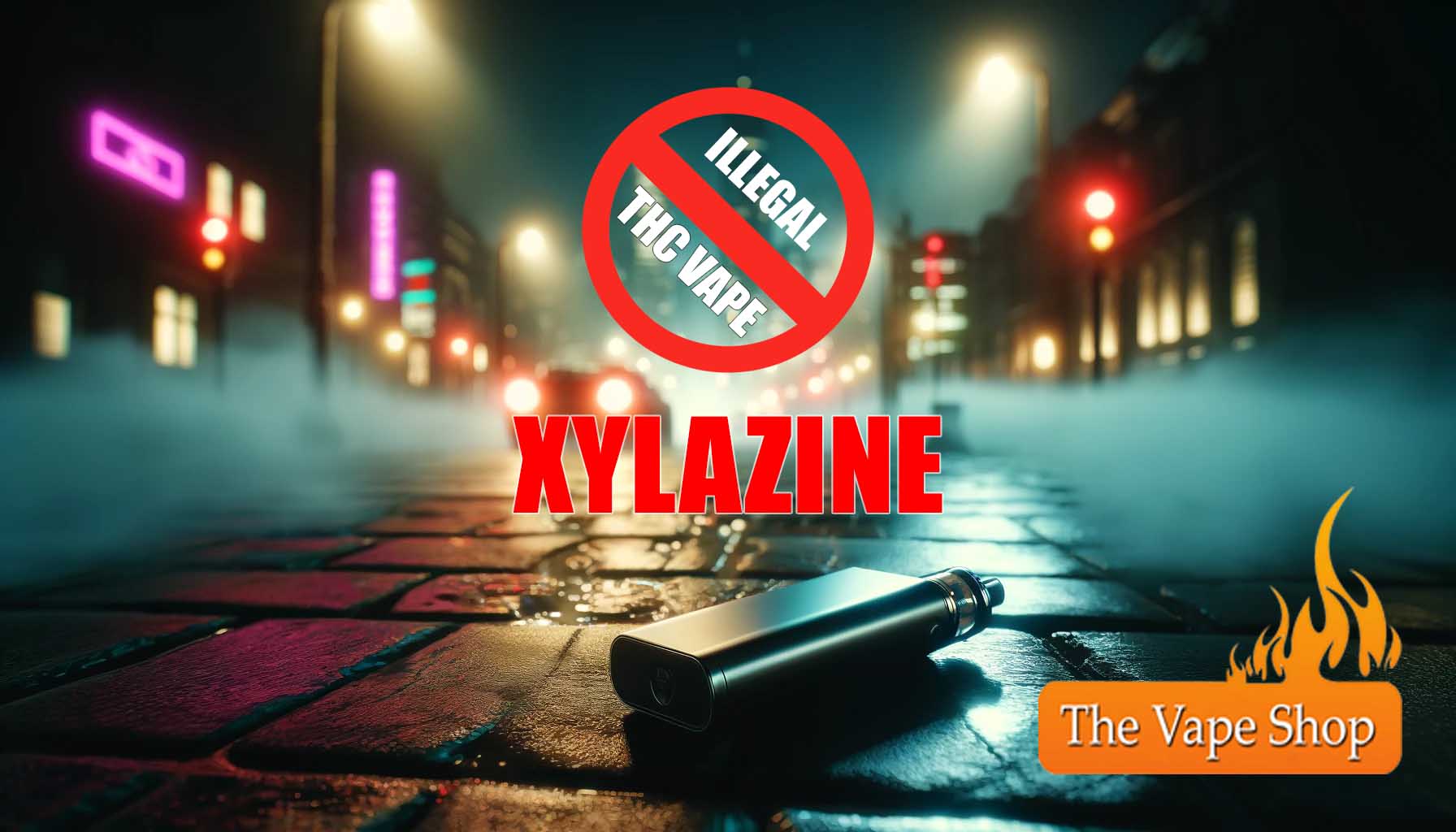Implications for Vape Businesses and Consumers
The UK government is currently contemplating groundbreaking legislation aimed at fostering a smoke-free generation. This development emerges as details released with Rishi Sunak’s inaugural King’s speech suggest a potential new levy on vaping products as part of a broader strategy.
Tighter Vape Regulations on the Horizon
The proposed regulations go beyond fiscal measures, as they seek to:
– Restrict the marketing of vaping products.
– Limit available flavours strictly to tobacco, or tobacco with mint.
– Enforce the concealment of vape products in retail settings, mirroring the current restrictions on cigarettes.
– Mandate plain packaging and eliminate appealing designs including cartoons and animal imagery.
– Prohibit the sale of disposable vapes.
– Exploring the imposition of a vape tax
Pros & Cons Of New Legislation For Vapers & Vape Businesses

1. Restricting the Marketing of Vaping Products
Pros for Vapers:
– May reduce impulsive purchases based on marketing, leading to more deliberate and informed choices.
– Potentially decreases the appeal to non-smokers or younger demographics.
Cons for Vapers:
– Less exposure to information about new and potentially safer alternatives to smoking.
– Could limit knowledge of available products and where to find them.
Pros for Vape Shops:
– Could level the playing field for smaller shops against larger companies with bigger marketing budgets.
Cons for Vape Shops:
– Harder to attract new customers without marketing their product range and special offers.
– Reduced brand differentiation, potentially leading to lower sales and customer loyalty.
2. Limiting Available Flavours to Tobacco or Tobacco with Mint
Pros for Vapers:
– May deter younger individuals who are often attracted to diverse flavours from starting to vape.
Cons for Vapers:
– Lack of variety could diminish the appeal of vaping as an alternative to smoking.
– Could make it harder for smokers to switch to vaping if they are not attracted to tobacco or mint flavours.
Pros for Vape Shops:
– Simplifies inventory management with fewer product lines to maintain.
Cons for Vape Shops:
– Likely to see a decrease in sales as customers may lose interest without flavour variety.
– Innovation and product differentiation could be stifled, potentially affecting profits.
3. Enforcing the Concealment of Vape Products in Retail Settings
Pros for Vapers:
– Minimises temptation and impulsive buys for current vapers trying to reduce their usage.
Cons for Vapers:
– More difficult to browse and compare products, possibly leading to less informed purchase decisions.
Pros for Vape Shops:
– May encourage more direct interaction between staff and customers seeking products.
Cons for Vape Shops:
– Could result in lower sales due to the ‘out of sight, out of mind’ effect.
– Increased difficulty in showcasing new and innovative products to customers.
4. Mandating Plain Packaging and Eliminating Appealing Designs
Pros for Vapers:
– Helps to prevent the perception of vaping as a harmless activity, possibly reducing uptake among non-smokers.
Cons for Vapers:
– Loss of personal expression and brand affinity, making the experience less enjoyable.
Pros for Vape Shops:
– Streamlined packaging could potentially reduce costs for producers and retailers.
Cons for Vape Shops:
– Difficulty in establishing brand recognition and loyalty without distinctive packaging.
– Reduced shelf appeal could lead to a decline in sales.
5. Prohibiting the Sale of Disposable Vapes
Pros for Vapers:
– Encourages the use of more sustainable, reusable vaping devices.
– Could lead to a higher standard of product quality and safety.
Cons for Vapers:
– Loss of a convenient and often cheaper entry point for smokers looking to transition to vaping.
– Fewer choices for users who prefer the ease of use associated with disposables.
Pros for Vape Shops:
– Opportunity to sell more durable and potentially higher-margin reusable devices.
Cons for Vape Shops:
– Potential loss of a segment of customers who prefer the convenience of disposable vapes.
– Immediate decrease in sales volume from disposables, which are popular impulse buys.
6. Introduction of New Vape Duty/Tax
Pros for Vapers:
– Could potentially fund public health campaigns and cessation support services.
– If taxed less than cigarettes, it still positions vaping as a more affordable alternative to smoking.
Cons for Vapers:
– Increased costs may deter current smokers from switching to vaping as a cessation method.
– Higher prices could encourage a black market or a return to smoking, which is more harmful.
Pros for Vape Shops:
– A clear tax structure could legitimise the market, potentially leading to a more stable business environment.
– Might result in reduced competition if smaller or informal vendors are unable to cope with the new tax implications.
Cons for Vape Shops:
– Higher prices could lead to a decrease in sales volume as customers are put off by increased costs.
– The additional administrative burden of managing and remitting taxes.
– Possible market shrinkage if higher prices significantly reduce the number of vapers.
The Bigger Picture: The Tobacco and Vapes Bill

In the coming month, the UK government plans to introduce a comprehensive legislative framework — the Tobacco and Vapes Bill — which is poised to bring about a transformative shift in the country’s approach to smoking and vaping. At its core, the Bill is set to fortify the nation’s commitment to public health, particularly with a focus on protecting the youth.
The impending regulations are multifaceted, not merely altering the economic landscape through taxation but also by recalibrating the societal norms surrounding smoking and vaping. By restricting the marketing, availability, and presentation of vaping products, the Bill aims to significantly dampen their allure to the younger population, who are most susceptible to adopting such habits due to targeted advertising and the appeal of flavoured products.
A pivotal element of the Bill is the phased approach to make cigarettes inaccessible to individuals who are currently under the age of 14, thereby ensuring that as this demographic matures, they remain untainted by cigarette consumption. This strategy represents a future where the next generation could be entirely smoke-free, a bold public health initiative that might set a precedent on a global scale.
Moreover, the Bill embodies a dual approach: while discouraging new uptake of smoking and vaping among young people, it does not lose sight of the current smokers. The suggested regulations take into account the role of vaping as a smoking cessation aid. The UK government, therefore, indicates the necessity to strike a delicate balance between making smoking cessation aids available, but not attractive to non-smokers, especially the youth.
In essence, the Tobacco and Vapes Bill is not simply a piece of legislation; it’s a strategic roadmap aimed at eradicating the scourge of smoking from the next generation, while also grappling with the complexities of vaping as both a potential public health tool and a challenge.
Conclusion: What This Means for Vape Businesses and Customers

The surprise move to tax vapes was a standout element in a speech that otherwise sought to delineate clear policy differences with the opposition. With the Conservatives preparing for the forthcoming election amid challenging poll standings, this legislative agenda is part of a broader effort to portray a rejuvenated and forward-thinking government. For vape shops and consumers, the implications are substantial. The industry faces potential restraints on product variety and visibility, which could reshape the market dynamics, possibly making vaping less appealing to new users and altering the landscape for cessation products.
The Vape Shop, along with other stakeholders, will be closely monitoring these developments, assessing the impact of each proposed measure on both business operations and customer choices. The dialogue between the vaping industry, health advocates, and the government will be crucial as the UK charts a course toward a healthier, smoke-free future.














